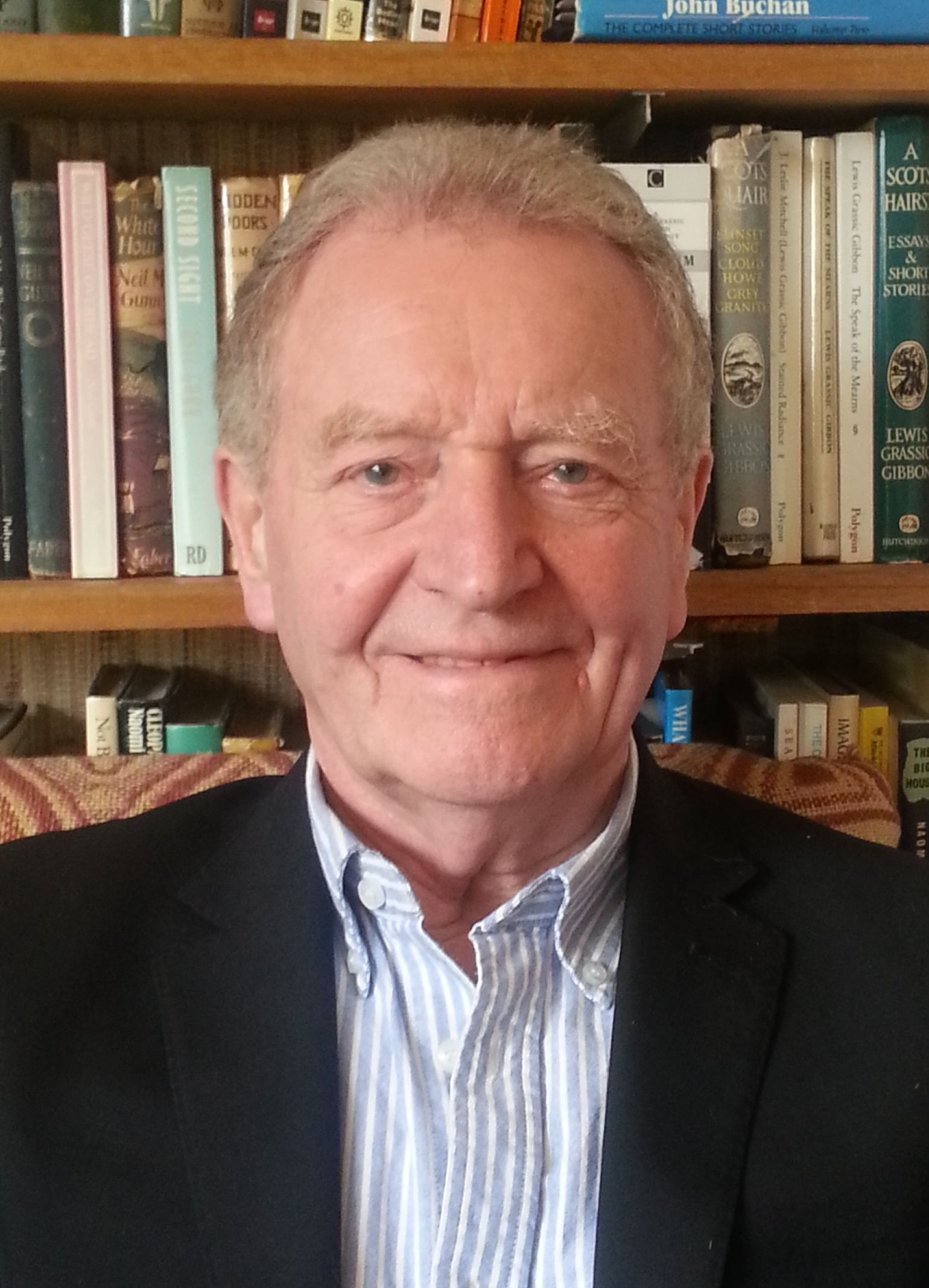2013
Our President in 2013/4 was:
Douglas Gifford
He proposed the Toast to Sir Walter at our 105th Annual Dinner on 6th March 2014 in The New Club, Edinburgh
Summary of the Speech:
Professor Gifford delivered a wide-ranging and thought-provoking toast to the memory of Sir Walter Scott, focusing on Scott's legacy in Scottish historical fiction and national identity. His central argument was that Scott’s fiction, while often ending on a note of reconciliation, ultimately grapples with themes of division, defeat, and the tragic costs of history—making his legacy more complex than is often acknowledged.
Gifford proposed two key ideas:
- Scott’s novels, though structured around supposedly fortunate resolutions, are essentially "defeated by history"—reflecting the enduring cultural and political fractures within Scotland.
- Scott inspired a tradition of post-Scott Scottish fiction (from Stevenson and John Galt to Neil Munro, S.R. Crockett, John Buchan, and beyond) that continued this thematic concern with division, failure, and cultural self-interrogation.
Noteworthy Points:
- Selective History: Gifford noted that Scott largely avoided writing about certain prominent Scottish historical periods (e.g. Columba, Bruce, the Lords of the Isles, or James IV’s reign), favouring moments of deep societal fracture like the Covenanting Wars and the Jacobite Rebellions.
- Scott's Double Vision: He was caught between emotional loyalty to Scotland’s past and a rational embrace of modern British order. This duality produced fiction that attempts reconciliation but cannot escape its sense of loss.
- Coleridge's Insight: Gifford invoked Samuel Taylor Coleridge’s observation that Scott’s novels dramatise a clash between faithful adherence to tradition and modern progressive reason.
- Legacy as Tragic Meta-Novel: Scott’s collected works form, in Gifford’s view, a kind of meta-novel of disillusionment, where even protagonists like Waverley or Jeanie Deans are swept along by historical forces beyond their control.
- Post-Scott Writers: Successors such as Stevenson, Galt, Crockett, and Buchan are shown to have inherited Scott’s framework—often presenting naïve young protagonists who witness or are caught in cycles of betrayal, failure, or ideological conflict.
- Stevenson’s Dark Inheritance: Gifford gave special attention to Kidnapped and Catriona, noting their deep engagement with Scotland’s political betrayals and historical guilt—explicitly linking Stevenson’s David Balfour to Scott’s Edward Waverley.
- Rejection of Romanticised Scotland: Rather than the sentimental "Kailyard" or Celtic Twilight portrayals, these authors expose realistic, divided, and morally ambiguous Scotlands, often using paired or polarised characters to dramatise internal conflict.
- Language and Landscape: Gifford stressed the vital role of Scottish voices and terrains in the fiction of Scott and his heirs. The enduring presence of ordinary people speaking Lowland Scots, Gaelic, or Border dialects was presented as a symbol of cultural resilience.
- Final Affirmation: Though tragic in tone, the tradition affirms the integrity of the Scottish people, language, and land. Characters like Jeanie Deans represent enduring moral strength amidst political and historical defeat.
- Modern Continuation: Contemporary writers such as Lewis Grassic Gibbon, Alasdair Gray, James Robertson, and others continue Scott’s tradition—emphasising ordinary lives, cultural division, and enduring identity in the face of historical tragedy.
Overall Reflection:
Professor Gifford’s toast was a powerful re-evaluation of Scott not as a celebrant of Scotland’s past, but as its chronicler of sorrow, fracture, and unrealised hopes. He traced a clear literary lineage from Scott to modern Scottish novelists, arguing that the strength of the tradition lies in its honest portrayal of division and its quiet affirmation of human dignity and endurance.
This was not just a tribute to a great author, but a nuanced and passionate account of a nation's struggle to define itself—through fiction, through failure, and through memory.

You may also like:
1998: Douglas Gifford – Inventing New Scotlands: The Achievements of Sir Walter Scott > [transcript]
Douglas Gifford was formerly Chair of Scottish Literature at the University of Glasgow; he was Emeritus Professor and Honorary Research Fellow. He had written extensively on Scottish fiction, including
James Hogg
(1976), and
Neil Gunn and Lewis Grassic Gibbon (1983). He edited
Scottish Literature; Nineteenth Century
(1988); with Dorothy McMillan he edited A History of Scottish Women's Writing, and with Sarah Dunnigan and Alan McGillivray,
Scottish Literature in English and Scots (2002). He was on The Saltire Society Book Awards Panel from 1982 till 2011, and is presently The Faculty of Advocates Honorary Librarian for Scott's Library at Abbotsford. He was a Fellow of the Royal society of Edinburgh.


